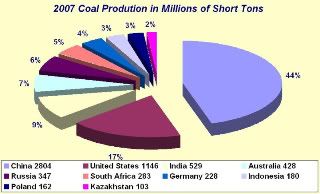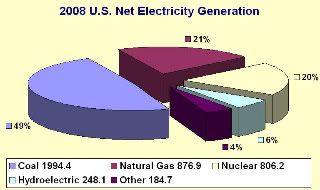 Governor Allen selected Peter Schmidt to head the Virginia Directorate of Environmental Quality, later appointing him to the Environmental Control Board. On that basis, you could rush to the conclusion that he would be bane to environmentalists. Quite the contrary. Candidate for the House of Delegates seat in the 82nd currently held by Bob Purkey (R-Virginia Beach), he is a champion of conservation and the environment with a world view that extends beyond existential policy positions with self-serving outcomes. Everyone knows credible appointees for these important positions are essential.
Governor Allen selected Peter Schmidt to head the Virginia Directorate of Environmental Quality, later appointing him to the Environmental Control Board. On that basis, you could rush to the conclusion that he would be bane to environmentalists. Quite the contrary. Candidate for the House of Delegates seat in the 82nd currently held by Bob Purkey (R-Virginia Beach), he is a champion of conservation and the environment with a world view that extends beyond existential policy positions with self-serving outcomes. Everyone knows credible appointees for these important positions are essential. Peter Schmidt’s pragmatism, the sort of quality valued by the Republican mainstream, is balanced by his calculus for the environmental impact of human activity, the kind of perspective environmentalists and many Democrats use to frame the issue. These are the qualities that will make him a legislator who can develop and recognize bipartisan solutions that are both practical and environmentally friendly without threatening economic growth.
A member of the group “Conservationists for Warner” crafting environmental policy for the Senator during his campaign, Peter was on the energy committee. As he participated in the research for policy development he found reinforcing evidence that energy policy goes to the issue of climate change. He points out that on a per capita basis, the United States clearly contributes the greatest proportion of greenhouse gas emissions. Both the US and China produce about six billion tons of greenhouse gas per year of the about 27 billion ton global total. India is not that far behind. But on a per capita basis, we contribute six times the amount as China and 17 times that of India.
The bottom line is that we have to stop any further growth in greenhouse gasses.Meanwhile, the data shows a significant acceleration of glacial melt, sea level rise, and an increase in the force of cyclones. For the longest time there have been those who contended that global warming is all smoke and mirrors including Virginia's formerly self-proclaimed state climatologist, Pat Michaels. There are likely other factors and reasonable persons may disagree about what the primary factor is, but Peter says, “There is compelling information that this is the real deal.” So he struggles with how we stop it from getting worse. In the end, the only factors humans can control result from human behavior and some of those behaviors are clearly affecting climate change. However, there are limits to changing those behaviors.
So what are we going to do? Sail the 7th Fleet over there and tell China not to open any more coal plants? They are opening two a week, typically with no controls like we have. How do we say, “Okay, no more power plants.” Are we going to bomb China? So we have to use the bully pulpit and we have to provide alternatives.
 One alternative may be a way to effect solar energy storage, particularly for isolated villages to which transmission costs are prohibitive. We are not there yet, but we can be. In nanotechnology, we are by far the leader. All the Phd candidates want to come here to study and many choose to stay. We have the capacity to advance alternatives that can reduce the human impact. But he realizes that this isn’t going to be solved today or tomorrow. We have got to share the technology to make coal cleaner. We have to show how to produce energy that will not cost more and will be cleaner. He asks "Where is the timeline and the plan to do that?" Right now we are just piddling at the surface and Boone Pickens’ wind mills are all well and good, but the transmission costs are terrific.
One alternative may be a way to effect solar energy storage, particularly for isolated villages to which transmission costs are prohibitive. We are not there yet, but we can be. In nanotechnology, we are by far the leader. All the Phd candidates want to come here to study and many choose to stay. We have the capacity to advance alternatives that can reduce the human impact. But he realizes that this isn’t going to be solved today or tomorrow. We have got to share the technology to make coal cleaner. We have to show how to produce energy that will not cost more and will be cleaner. He asks "Where is the timeline and the plan to do that?" Right now we are just piddling at the surface and Boone Pickens’ wind mills are all well and good, but the transmission costs are terrific.  What we have to look at, he believes, is what we can do that is reasonable predicated upon investment to get where we want to go with scarce resources. “It is going to cost a ton of money and we can’t do it tomorrow, but we have to move in that direction.” He says a good start would be the CAFÉ standards. ”Look at Europe,” he says, “plus or minus, Europe doubles us.” And he suggests a gas guzzler tax. Buy something that gets good mileage and you get a credit, buy a hummer and pay for the privilege. Also, he wants to consider the concept of a larger nuclear footprint because the French have proven they can take care of the backend on the fissionable material. He is adamantly opposed to offshore drilling. It does not provide a solution, certainly not long term and possibly not even short term. We must explore alternative energy. Although there might not be a million jobs to be created out there immediately, he knows we need to be a leader and that would have economic benefits well into the future.
What we have to look at, he believes, is what we can do that is reasonable predicated upon investment to get where we want to go with scarce resources. “It is going to cost a ton of money and we can’t do it tomorrow, but we have to move in that direction.” He says a good start would be the CAFÉ standards. ”Look at Europe,” he says, “plus or minus, Europe doubles us.” And he suggests a gas guzzler tax. Buy something that gets good mileage and you get a credit, buy a hummer and pay for the privilege. Also, he wants to consider the concept of a larger nuclear footprint because the French have proven they can take care of the backend on the fissionable material. He is adamantly opposed to offshore drilling. It does not provide a solution, certainly not long term and possibly not even short term. We must explore alternative energy. Although there might not be a million jobs to be created out there immediately, he knows we need to be a leader and that would have economic benefits well into the future. We can't drill our way out of the problem. The oil is going to the highest bidder. And, there's three weeks of oil, maybe, off the coast of Virginia. Maybe. And there's seven months off the entire east coast.
Then there is an issue near to his heart, the Chesapeake Bay. We have to decide what our interests should be and focus on those priorities first. Whatever we do, we have to generate economic activity in Virginia and the United States or we are not going to accomplish any goals including the cleanup of the Chesapeake Bay. Unfortunately, the emphasis on the Bay has been subordinated to other priorities.
Two months of spending in Iraq and the Chesapeake Bay is cleaned up.Schmidt came to know George Allen though their association with the athletic program at the University of Virginia. Schmidt 's success and accomplishments in the private sector and involvement in local politics later led to the DEQ appointment. Simultaneously with Schmidt's departure from DEQ, Allen appointed him to the Environmental Control Board. When his term expired there after four years, Governor Gilmore did not reappoint him. So there are limits to tolerance for reasonable environmental policy. And while Schmidt looks for practical long-term solutions to energy requirements, the incumbent he challenges co-patrons initiatives like HB 1633, divvying up offshore drilling royalties that are pipe dreams. This is just one of many areas where the choice between Peter Schmidt and Bob Purkey could not be clearer.
Cross posted at Blue Commonwealth

